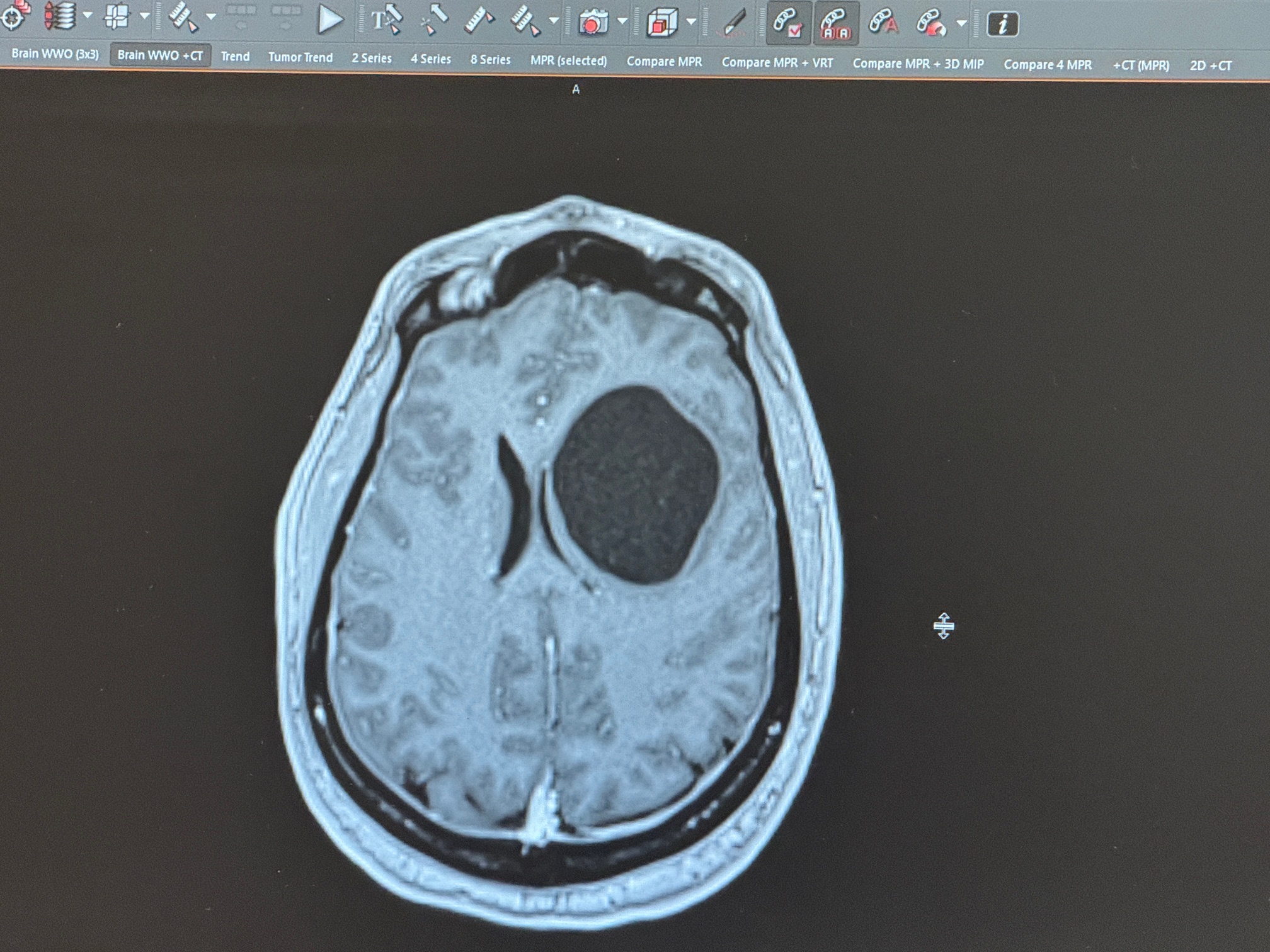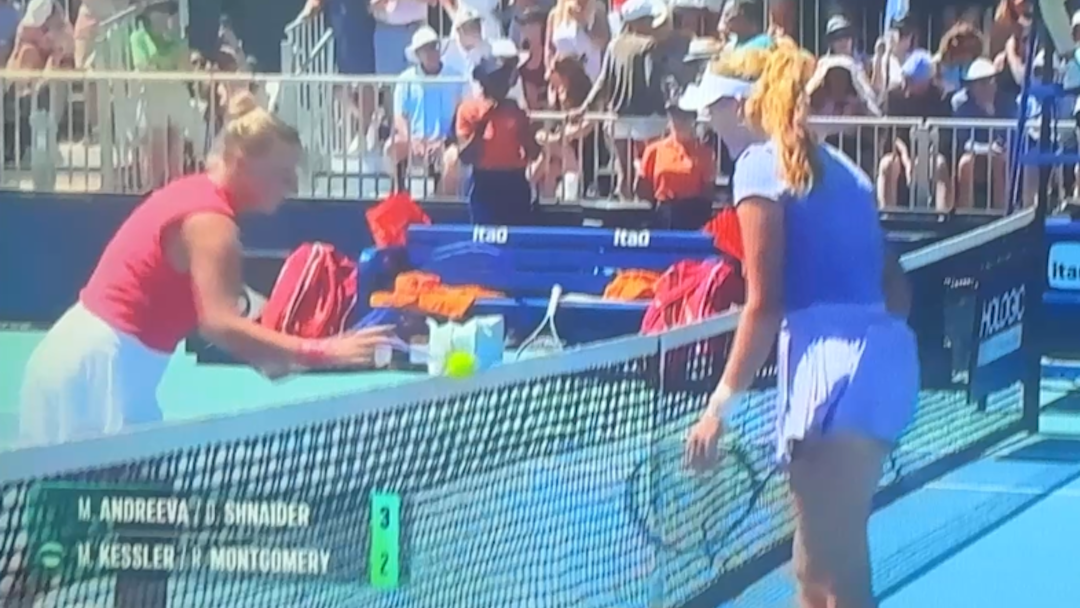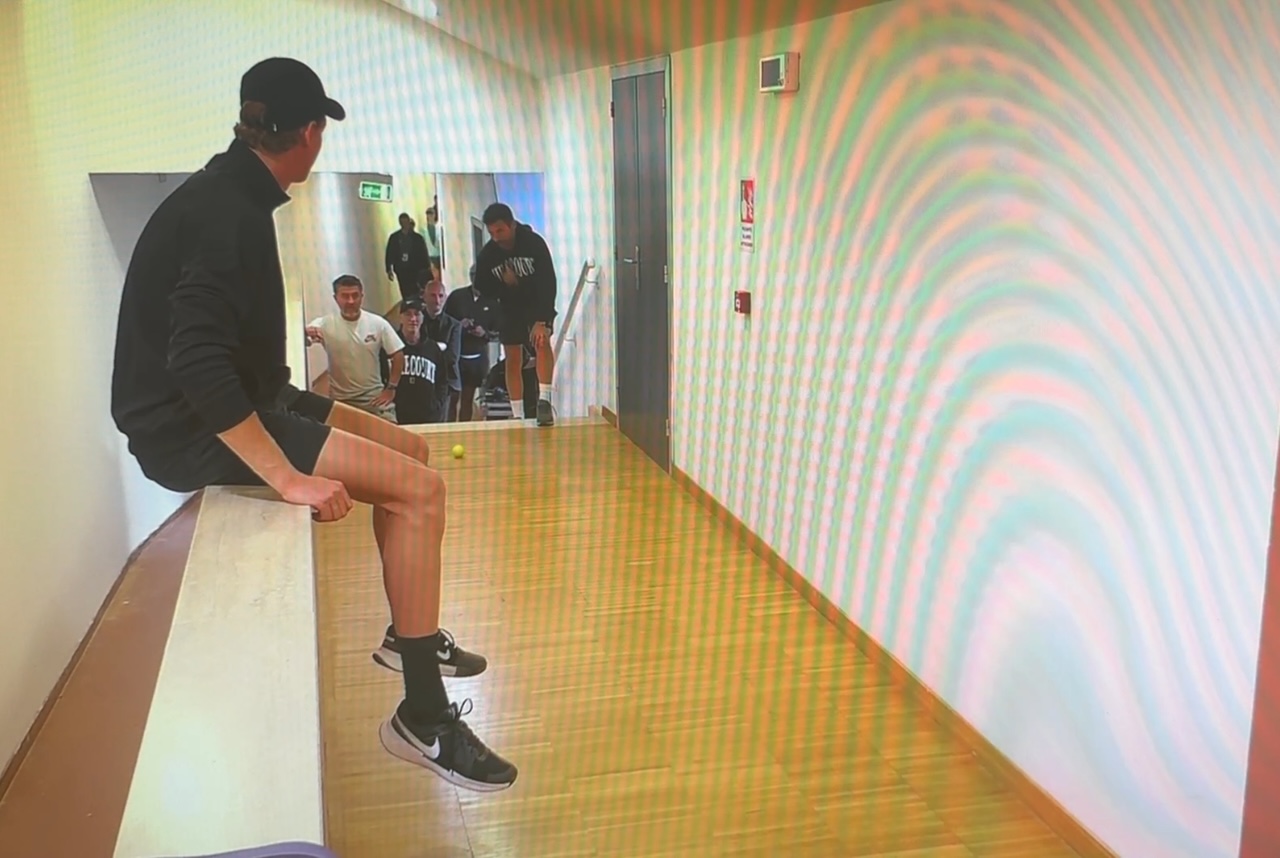Fiend at Court Unplugged
Evonne Goolagong’s profile in Grace Lichtenstein’s “A Long Way Baby: Behind the Scenes in Women’s Pro Tennis” highlights her easy going demeanor. She never scowled or argued and rarely exhibited irritation over a missed shot. She played the game with child-like abandon and enjoyment. Goolagong personifies how people should experience playing tennis. It is supposed to be fun.
The only criticism of her game on at the professional level is that Goolagong was prone to frequent and significant lapses in concentration. Lichtenstein recorded that that Evonne Goolagong referred to these episodes as “walkabouts.” By sheer coincidence, shortly before I read A Long Way Baby last week, I heard that word used in a social mixed match. I was familiar with the term, but not in a tennis context. However, I intuitively understood that walkabout in tennis means a “mental vacation.”
Walkabout is an Australian term that emerged from an Aboriginal practice associated with nomadic bush life. There are few people on the internet who regard the term is racist or offensive. I think the word is fine as evidenced by the frequency it comes up in and around Bill Bryson’s great book “In a Sunburned Country” (sponsored link) which I regard as mandatory reading for anyone considering a trip to Australia. However, people should be careful to not use it in a way that it could be considered derogatory or racist. There are a lot of words that work like that.
Walkabout (noun)
a short period of wandering bush life engaged in by an Australian aborigine as an occasional interruption of regular work
Merriam-Webster Online Dictionary
Curiously enough, there is general consensus on the internet that aborigine is offensive to original Australians. The term Aboriginal is preferred. I was kind of surprised to find the “wrong” version in the Merriam-Webster online definition.
Goolagong is of partial Aboriginal descent. When she was inducted into the International Tennis Hall of Fame in 1988, she provided an explanation for how she came to use that word.
Evonne says she used “walkabout,” a term that refers to the Aborigines’ nomadic camp-to-camp movements, as a pat answer for explanation-starved reporters. “They’d ask what happened at this stage of the match, and I’d say, `I don’t know, I just went walkabout,’ and that finished the interview,” she says.
Evonne Goolagong recalls career on eve of Hall of Fame induction [2]
That excerpt is interesting for a couple of reasons. First, it corroborates the idea that Goolagong was the first to associate that word with herself. Additionally, her comment makes it sound like it is possible that she was the original source of the addition of walkabout into the tennis vocabulary.
A google search for references to tennis walkabouts turned up a lone relevant item. In 1999, the Guardian ran an article with a quote from WTA player Alexandra Stevenson claiming that the medias association of walkabout with Goolagong was a derogatory slant against her Aboriginal heritage. That is refuted fairly strongly by Goolagong’s own account. As a side note, Alexandra Stevenson is one of the players profiled in Jon Wertheim’s Venus Envy. Wild and unsubstantiated claims is not off brand for that phase in her life.
Since google failed to produce a reference to tennis walkabouts earlier than when Goolagong used the term in 1973, it was time to revisit The Trove. The Trove is Australia’s free research portal of the National Library of Australia. From the searchable newspapers in that archive, I can share that there was a horse that was running in races in 1910 named Walkabout. Additionally, there was a Night Tennis team playing in Maitland in 1935 that was also called the Walkabouts. At about the same time a recurring “Tennis Walkabout” column ran for a couple of years. Those are examples of “walkabout” and “tennis” appearing in the same article, but not in the mind wandering context.
The earliest usage of walkabout as a mental lapse in tennis came in an article that ran in The Canberra Times in 1972. Goolagong was the headliner in the article, however the usage was actually from an unrelated match. Rosie Casals described a missed line call in her match as a walkabout. Additionally, in 1973 an article in the Papua New Guinea Post-Courier used the term to describe a mental collapse in a match by Margaret Court… against Goolagong.
The term walkabout became more common in the tennis vernacular following that point in time. Based on the evidence on hand, I am going to go out on a limb and stake the claim that Goolagong originated the the concept of walkabout in tennis. If anyone has an earlier verifiable reference that does not involve Goolagong, I will cheerfully exchange it for a Fiend at Court T Shirt.
- Walkabout, definition, Merriam-Webster Online Dictionary, viewed 19 Mar 2021.
- Evonne Goolagong recalls career on eve of Hall of Fame induction, Ross Atkin, The Christian Science Monitor, July 8, 1988.
- Stevenson revives those Goolagong Memories, Kevin Mitchell, The Guardian, 4 July 1999.
- Miss Goolagong ousts Helen Gourlay, The Canberra Times, 11 March 1972.
- Evonne stops Mrs Court in Finals, Papua New Guinea Post-Courier, 23 December 1974.
- Australian Open Tennis: Kim Warwick sails into quarter-final, The Canberra Times, 1 January 1981.
Fiend At Court participates in the amazon associates program and receives a paid commission on any purchases made via the links in this article. Additional details on the disposition of proceeds from this source are available in the “About Fiend at Court” page.



